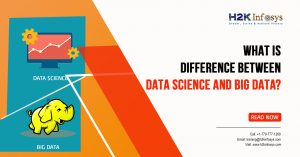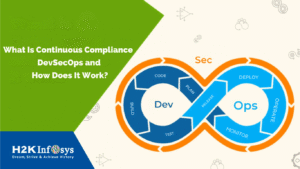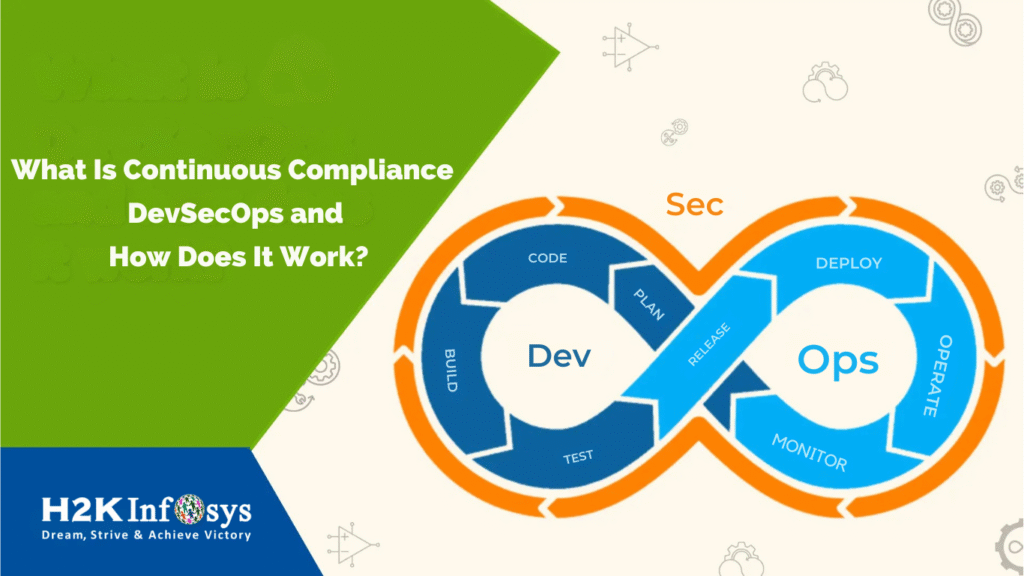Introduction
In a world driven by technology and data, Python has established itself as a versatile and powerful programming language that is widely adopted across industries. From automating tasks to powering machine learning algorithms, Python’s simplicity and extensive libraries make it a go to tool for developers, data scientists, and engineers alike. But where is Python used in the real world?
In this blog post, we’ll explore 30 practical Python applications across various domains like data science, web development, artificial intelligence, and more. Whether you’re a beginner or an advanced programmer, understanding these applications will help you appreciate the importance of Python and how mastering it can open doors to countless career opportunities.
If you’re eager to learn and apply Python applications in real world scenarios, consider enrolling in H2K Infosys’s Data Science using Python Online Training, one of the Python Programming Online designed to help you master Python applications and become an industry-ready professional.
Why Python is Everywhere
Before diving into the applications, let’s understand why Python is so popular:
Ease of Learning: Python’s syntax is simple and readable, making it beginner friendly.
Versatile Libraries: Python offers libraries like NumPy, Pandas, and TensorFlow that simplify complex programming tasks.
Community Support: With a large community of developers, Python has extensive resources for troubleshooting and learning.
Cross Platform Compatibility: Python works on all major platforms, from Windows to Linux and macOS.
These features enable Python to be applied across multiple sectors, from automating mundane tasks to solving complex data problems.

Web Development
Python applications are widely used for building websites and web apps. With frameworks like Django and Flask, developers can create scalable, robust platforms quickly. Python applications also simplify rapid prototyping, allowing developers to integrate features such as databases, authentication, and real time interaction easily. The versatility of Python applications makes it a top choice for web development.
Example: Instagram is one of the biggest platforms built using Python, scaling effortlessly to accommodate millions of users.
Data Science
Data science is a key area where Python applications excel. Tools like Pandas, NumPy, and Matplotlib enable Python applications to handle data manipulation, statistical analysis, and visualization. Python applications make tasks like data cleaning, exploration, and insight presentation from raw data much simpler.
Case Study: According to a survey by Kaggle, over 80% of data scientists prefer Python due to its flexibility and efficiency in handling data.
Machine Learning and AI
Python powers artificial intelligence (AI) and machine learning (ML) applications. Frameworks like TensorFlow, Keras, and Scikit learn allow developers to build models that can learn from data, predict trends, and make decisions.
Example: Netflix uses Python driven ML algorithms to provide personalized recommendations to its millions of users.
Automation and Scripting
One of Python’s most useful real world applications is automation. Python scripts can automate repetitive tasks like file management, data entry, and email automation. Tools like Selenium even allow automating browser tasks.
Example: Companies like Dropbox use Python to automate their storage services, ensuring data synchronization and file sharing seamlessly.
Web Scraping
Python’s BeautifulSoup and Scrapy libraries make it easy to scrape data from websites. Whether gathering data for market research or monitoring competitors, web scraping is a practical use case for Python.
Example: Price comparison websites rely on Python to pull data from multiple e commerce sites, allowing users to get the best deals.
Game Development
Python is used in creating simple games using libraries like Pygame. While it’s not the most common language for high end game development, it’s great for prototyping and educational purposes.
Example: Civilization IV, a well known strategy game, was developed with Python as its core scripting language.
GUI Development
Python’s simplicity extends to Graphical User Interface (GUI) development. Libraries like Tkinter and PyQt make it easy to create user friendly desktop applications.
Example: The GUI for YouTube video downloader applications is often built using Python’s Tkinter library.
Networking and Cybersecurity
Python is highly regarded in cybersecurity for its ability to write automation scripts, conduct penetration testing, and simulate attacks. It’s also widely used in network programming to create custom protocols.

Example: Tools like Scapy and Paramiko are Python based, helping cybersecurity experts analyze and manipulate network traffic.
Blockchain and Cryptocurrency
Python’s flexibility allows it to be used in developing blockchain platforms and managing cryptocurrency transactions. Libraries like PyCryptodome are used for creating encryption algorithms essential for blockchain.
Example: Ethereum uses Python for its implementation of smart contracts.
Robotics
Python is essential in robotics for creating algorithms that guide robotic behavior. It works seamlessly with ROS (Robot Operating System), making it a go to language for robotic engineers.
Example: Boston Dynamics, known for its agile robots, uses Python to test their robots’ functionality and movements.
Automation in Finance
Python is widely used in fintech for automating processes, analyzing trends, and optimizing portfolios. Libraries like PyAlgoTrade and Quantlib enable users to build algorithmic trading models.
Example: JP Morgan uses Python for quantitative analysis and to develop algorithms for predicting financial markets.
E-commerce Platforms
Python’s scalability and speed make it suitable for large e-commerce platforms. From backend server-side processing to inventory management, Python helps streamline operations.
Example: Shopify, a leading e-commerce platform, utilizes Python for backend development.
Voice and Speech Recognition
Python can interact with speech recognition APIs and frameworks like Google Speech Recognition to create voice controlled applications.
Example: Python powers virtual assistants like Siri and Google Assistant, allowing them to understand and process human language.
Healthcare and Pharmaceuticals
Python plays a crucial role in healthcare, where it’s used to develop software for medical diagnostics, patient management, and drug discovery.
Example: Zocdoc, an online medical care scheduling service, uses Python for backend development.
Internet of Things (IoT)
Python works well with hardware, making it a popular choice for IoT applications. With libraries like PySerial, Python can interface with sensors and other hardware components.
Example: Raspberry Pi, a low cost IoT hardware platform, supports Python for automation projects.
Cloud Computing
Python is extensively used in cloud computing platforms for serverless applications, API development, and cloud-based data management.
Self-Driving Cars
Python powers the algorithms behind autonomous vehicles, enabling cars to make real time decisions based on data collected from cameras and sensors.
Natural Language Processing (NLP)
Python is widely used in NLP, a branch of AI that deals with text analysis, translation, and sentiment analysis.
Example: Google Translate utilizes Python based NLP models to provide real-time language translation.
Space Technology
Python is used in scientific research and space exploration. NASA uses Python to solve complex mathematical problems and process astronomical data.
Example: NASA’s data processing pipeline for analyzing satellite images and astronomical data uses Python.
Energy Sector
Python helps the energy sector with predictive analytics, optimization models, and simulation algorithms.
Example: General Electric uses Python to manage and optimize energy consumption in power plants.
Online Education Platforms
Python is a favorite among e learning platforms. It’s used to manage backend operations, student records, and real time updates.
Virtual Reality (VR)
Python is emerging in the VR industry, where it helps create immersive experiences and environments through advanced simulations.
Example: Python helps in the development of interactive simulations used for training purposes in industries like aviation and military.
Customer Relationship Management (CRM)
Python powered CRM tools help businesses manage customer data, sales, and communication channels.
DevOps and Continuous Integration
Python is widely used for DevOps automation. From deploying applications to testing and integration, Python scripts can automate the entire DevOps pipeline.
Example: Jenkins, a popular CI/CD tool, uses Python for automation in software testing and deployment.
Multimedia Applications
Python can handle multimedia tasks such as audio and video manipulation, thanks to libraries like Pygame and PyDub.
Scientific Computing
Python is a staple in the scientific community, offering libraries like SciPy and SymPy for solving scientific equations and analyzing data.
Transportation and Logistics
Python plays a crucial role in optimizing routes, managing fleet operations, and forecasting demand in the logistics sector.
Marketing and Advertising
Python is instrumental in creating digital marketing tools that analyze customer behavior, optimize campaigns, and automate workflows.
Augmented Reality (AR)
Python has started to make its mark in AR applications. Python’s frameworks enable developers to create interactive environments and enhanced experiences.
Entertainment and Media
Python powers media streaming services by handling data processing, content management, and user experience.
Conclusion
From data science to gaming, Python has a far-reaching impact on almost every industry. Its flexibility and simplicity make it the go to language for countless professionals across various fields. Python applications span from building machine learning models and automating workflows to creating engaging video games and powering sophisticated web development projects. As a versatile programming language, Python continues to grow in importance, offering endless possibilities for innovation and problem solving.
The beauty of Python applications lies in their adaptability. Whether you’re developing a groundbreaking AI system, analyzing vast datasets in data science, or designing interactive gaming environments, Python is a vital tool. Its libraries and frameworks simplify even the most complex tasks, making it easier for professionals to implement solutions quickly and efficiently. The impact of Python applications is seen in real-world scenarios, from healthcare analytics to e-commerce automation, solidifying its place as a must-know language for today’s workforce.
If you’re a developer, data scientist, entrepreneur, or even just beginning your tech journey, learning to harness the power of Python applications can significantly boost your career prospects. Python’s growing role in industries such as finance, artificial intelligence, and even space exploration highlights its capacity to evolve and stay relevant. It’s clear that Python applications are the foundation of many cutting edge technologies, providing professionals with tools to create, innovate, and drive meaningful change in the digital age.
If you’re ready to apply Python in real world scenarios and build a successful career, now is the perfect time to take action. By learning and mastering Python applications, you can position yourself at the forefront of industry trends and capitalize on opportunities that could shape the future.
Key Takeaways
- Python’s Versatility Across Industries: Python is extensively used in diverse fields such as data science, web development, artificial intelligence, automation, and finance, making it one of the most flexible programming languages for solving real world problems.
- Python Dominates Data Science & AI: Python’s rich ecosystem of libraries like Pandas, TensorFlow, and Scikit-learn powers data science and machine learning applications, enabling professionals to analyze, visualize, and predict trends with ease.
- Career Opportunities in High Demand Fields: Mastering Python opens doors to lucrative careers in rapidly growing industries like data science, AI, web development, and automation. Enrolling in H2K Infosys’s Data Science using Python Online Training is a great way to start your Python journey.
Call to Action
At H2K Infosys, our Data Science using Python Online Training is designed to give you the skills and hands on experience needed to excel in Python applications. Enroll in one of the python programming online today, and take advantage of free Python training resources to get started on your learning journey.

























